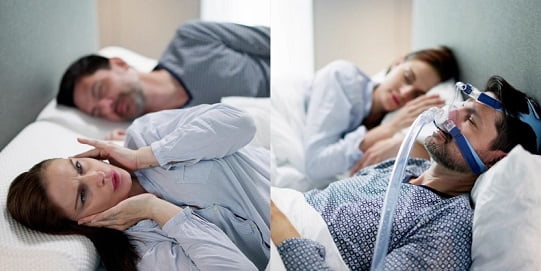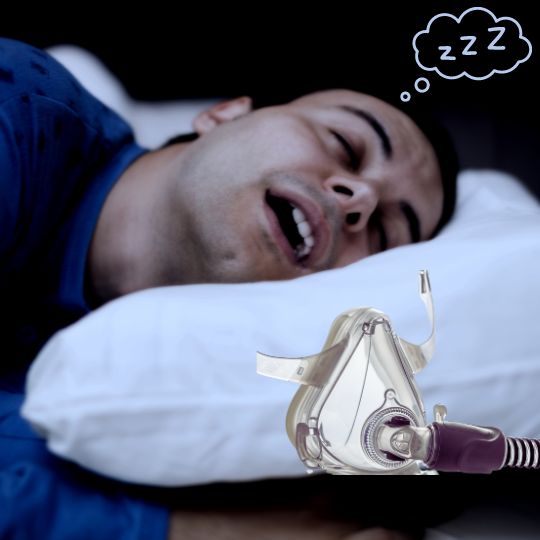Introduction
Contents
There exists a condition lying somewhere in that twilight zone between waking and dreaming, which is so often masked by the sound of snores — sleep apnea. But what if I told you that the beast doesn’t always let out a snore to announce its presence? So, a simple answer to the question “can you have sleep apnea without snoring?” would be – yes, you may not snore yet still have sleep apnea. This medical condition of yours is like the silent alarm that you never heard, and the health plot twist that you didn’t see coming. We will unravel the intriguing connection between sleep apnea and snoring, and it’s weird enough to beat M. Night. Shyamalan’s movies.
The Silent Intruder: Can You Have Sleep Apnea Without Snoring?
Sleep apnea, for the uninitiated, is essentially when your breathing says, “I think I’ll take a quick break,” turning your night into a series of breathless awakenings. The most common culprit behind this is Obstructive Sleep Apnea (OSA), where your airway is about as open as a closed book, thanks to various factors like your muscles relaxing too much or having a smaller airway. The common belief is that snoring is the hallmark of sleep apnea. But it turns out you can have Sleep Apnea and not snore.

Signs You Might Have Sleep Apnea Without the Snore
You might say, “But how can this be? I thought snoring was the body’s way of saying, ‘Hey, something’s not right here!'” And you’d be partly right. While it is a typical indicator, snoring is not the only one. There are other less noisy, but equally troubling symptoms such as,
- Choking: Gasping for air or feeling of breathlessness in your sleep,
- Daytime Fatigue: Do you find that moving around during the day is as slow as moving through molasses? The source of your energy loss may be sleep apnea.
- Morning Headaches: A headache at awakening may indicate that your brain did not receive enough oxygen throughout the night.
- Unrefreshing Sleep: It may be time to investigate more if you are getting enough sleep yet wake up feeling as though you have run a marathon.
- Memory Loss and Mood Swings: Distorted sleep affects both your mood and your ability to remember things. If you’re feeling more forgetful or irritable, it might not just be your busy schedule.
How Can One Have Sleep Apnea and Not Snore?
So, why the silence? The obstructed airways that cause snoring may not be present for all sleep apnea patients. In some cases, the airway is only partially obstructed such that the normal breathing process is disrupted, though the snoring sound is not produced. It feels like someone broke in covertly and left no evidence behind.
Diagnosing Sleep Apnea When You Do Not Snore
The absence of the snoring symptom may make the diagnosis of sleep apnea without snoring challenging. It’s just like joining the pieces of a puzzle without the total picture. However, there is no need to worry because sleep studies (polysomnography) evaluate the process of our sleep very thoroughly and provide detailed information about what is happening during sleep. These studies usually keep track of your heart rate, respiratory rate and many more factors which help to unmask hidden complications in your sleep.

What to Do When You Have Sleep Apnea Without Snoring
If you suspect you’re a silent sufferer of sleep apnea, the first step is recognizing that you’re not alone. Many people take this quiet route without realizing that their unsatisfactory sleep may be the result of a curable illness. The key is to recognize your body’s tiny indications before they escalate into outbursts. Regular checks, paying attention to the subtle signs, and taking a proactive approach to sleep health may all lead to better sleep.
Can You Snore and Not Have Sleep Apnea?
Snoring is not always associated with sleep apnea. In this case, snoring might not be a sign of a stop in your breathing but rather your body’s way of joining in on the nightly chorus.
It’s important to realize that not every snoring is an attempt to wake you up from a deep slumber. Some are just the body’s peculiar way of expressing, “I’m resting, but I’m also playing my own kind of music.” It’s critical to distinguish between snorers who are merely bothersome and do not pose a health risk, and those whose snoring is a sign of a more serious condition such as sleep apnea.
Finally, Accept the Quiet, But Pay Attention to Its Warning
In conclusion, keep in mind that you can have sleep apnea without snoring and vice versa. The night is full with secrets, but we can decipher them with attentive listening and careful observation. The first step to a comfortable night is recognizing the symptoms and getting the help you need, regardless of whether your bedtime tale involves snoring, silent sleep apnea, or both. Rest well, readers; tomorrow is another day to breathe deeply, experience life to the fullest, and sleep well.








